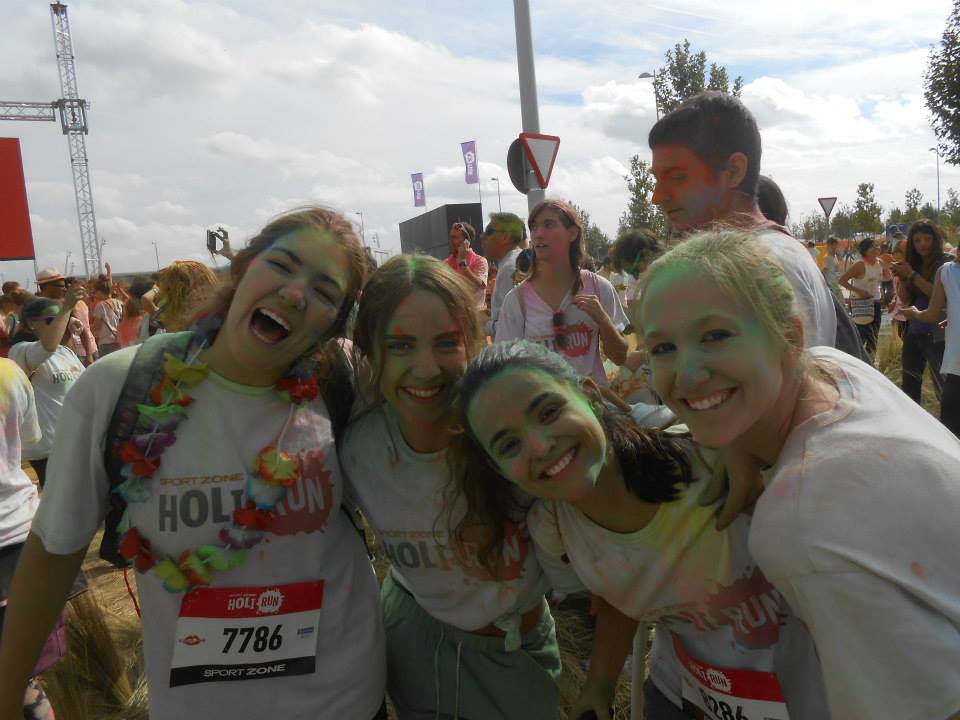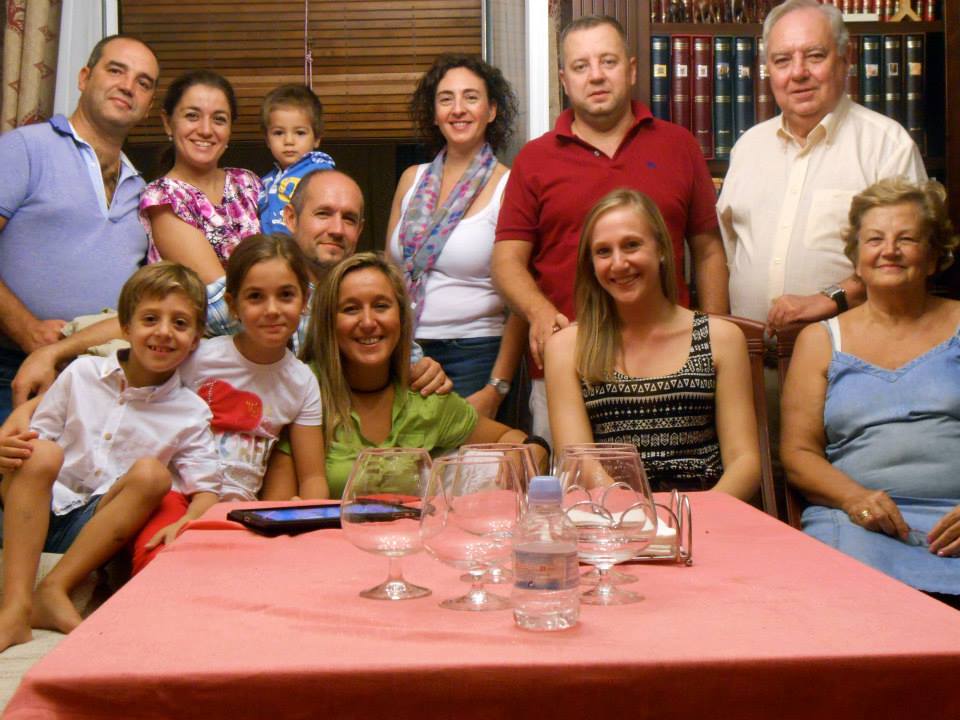
For those of us who go abroad with the goal of mastering another language, we all fantasize about how amazing and miraculous our language-immersion experience will be. Though we might have different ideas of how to accomplish this, in general, the hope is to leave our destination and return home being able to communicate at a much higher level than we did before we arrived.
When I began studying Spanish in high school at 14, I knew right away that I felt a connection to the language and had a genuine enthusiasm for it. What I didn’t know, however, is that I would eventually choose to make Spanish my major in college and that it would become my main motivation for wanting to explore the unknown by studying abroad.
While preparing for my semester in Seville, Spain, I was filled with excitement at the thought becoming fluent and being fully immersed in Spanish culture. I chose the most advanced language-immersion program I could find and imagined what it would be like to live with a host family and take classes at the local university with Spanish students as my classmates. I talked to professors and previous study abroad participants about my goal of becoming fluent and everyone reassured me that it would happen:
“You’ll have a dream in Spanish and the next day you’ll be fluent.”
“When I studied abroad, I woke up one day and just understood everything.”
“I didn’t speak English once when I was abroad, not even with my American friends.”
“I sort of forgot how to speak English after a few months.”
These were all things that people actually told me had happened to them, and I was totally convinced that this would happen to me too. I don’t know about anyone else, but I certainly did not experience anything like this while I was in Spain, or at least not to the extreme degree that they were describing.
There were two scenarios that I saw frequently among many of my peers while studying abroad. The first was that students went abroad with the idea of traveling with their friends, having adventures, drinking, partying… and there was no real interest in cultural immersion. ¡Qué lástima!
The second was that some students were very excited about the chance to learn another language and become immersed in the culture, but once there, latched onto other Americans for comfort and familiarity in a foreign situation, and either forgot about or gave up on what they originally wanted to achieve.
The first scenario is pretty straightforward. If you don’t set goals for yourself beyond travel and adventure, you’re never going to accomplish anything else while abroad.

The second scenario is a bit more complex, because unfortunately for many students eager to learn and experience a new culture, reaching their goals turns out to be a lot more daunting than expected. Shielded by the notion that becoming fluent is easy, students might feel disappointed with their progress or intimidated when realizing just how difficult learning a second language can be, leading them to spend more and more time with fellow Americans instead of challenging themselves by making friends with native speakers.
So what does it really take to become fluent in a second language? Is becoming fluent realistic? If not, what are some more practical language acquisition goals that we can set for ourselves? The truth is that it takes years and years to master a second language, and spending a semester abroad will not make anyone fluent. However, it’s not all hopeless! There are plenty of steps we can take improve our language skills:

● Don’t just live with a local family, but engage with them. Spend time with them and make conversation, and not just at required mealtimes.
● Don’t just take classes at your program study center with other Americans, but take classes at the local university with Spanish professors and other Spanish students. Try to embrace the challenges of a different educational system and be excited knowing you will accomplish something most students abroad are too scared to attempt. Become involved with clubs or other activities just like you would at home. Being active and volunteering abroad is an excellent step to take on your path to global citizenship.
● Don’t travel every single weekend while living abroad, but rather spend some time in your local community. This isn’t to say you shouldn’t travel at all; believe me, getting the opportunity to explore and find adventure is incredibly important, and something we should all take advantage of while living abroad. However, sometimes there is exploring and adventure to be had right under our noses if we just look for it.
● Lastly, and perhaps most importantly, don’t just just spend time with Americans speaking English, but try to make local friends and speak to them in your second language. This may be one of the most challenging parts of studying abroad because making friends isn’t always easy, especially when you’re trying to do it in another language. We may feel confused and frustrated when struggling to express ourselves. From my own experience, I often felt self-conscious and discouraged when I made mistakes and I felt more shy than I had ever been in my life. The blog by Benny Lewis about his own struggle to learn Spanish is a great a testament to how persistence will ultimately lead to success… ¡echa un vistazo!
Unlike my experience studying abroad as an undergraduate, while living in Spain as a graduate student, I didn’t have any close friendships with anyone in my program. I felt sad and extremely lonely, and I really missed having close friends to rely on. I decided that instead of feeling disappointed, I was going to make the best of the situation by really focusing on spending time with my Spanish roommates and dedicating myself to making new friends.
Even though I sometimes felt insecure, I pushed myself out of my comfort zone by spending more time with my roommates and their friends. I went to parties and events with them, often the only American in a large group of people. Without having American friends to fall back on, I was forced to speak Spanish and really develop those new friendships. The experience was difficult, yet so rewarding. I can’t emphasize enough how crucial this was for me in improving my language skills and really becoming a part of the culture instead of just an observer.
We have to remember that like anything else, language acquisition does not come without hard work. We are not going to simply wake up one day and magically be fluent, nor can we become fluent simply by spending a few months abroad. Language acquisition is on-going, and it often takes years to really learn all of the subtle nuances of language and culture. The first step in learning a second language is to set realistic goals for ourselves and know that while “becoming fluent” is unlikely, we can improve our language skills by really committing to our goals and being fully dedicated to achieving them. By challenging yourself and pushing your limits, not only will you improve, but I can guarantee you will gain some of most unique and memorable experiences of your time abroad.
 About the Author: After spending a few years studying and working in Spain, Jordan Zilla recently returned to the U.S. and is pursuing a career in International Education. She is currently working at St. Mary’s College in Maryland in the Office of International Education. In addition to her love for travel, she is an avid reader, animal-lover, and self-proclaimed foodie.
About the Author: After spending a few years studying and working in Spain, Jordan Zilla recently returned to the U.S. and is pursuing a career in International Education. She is currently working at St. Mary’s College in Maryland in the Office of International Education. In addition to her love for travel, she is an avid reader, animal-lover, and self-proclaimed foodie.
